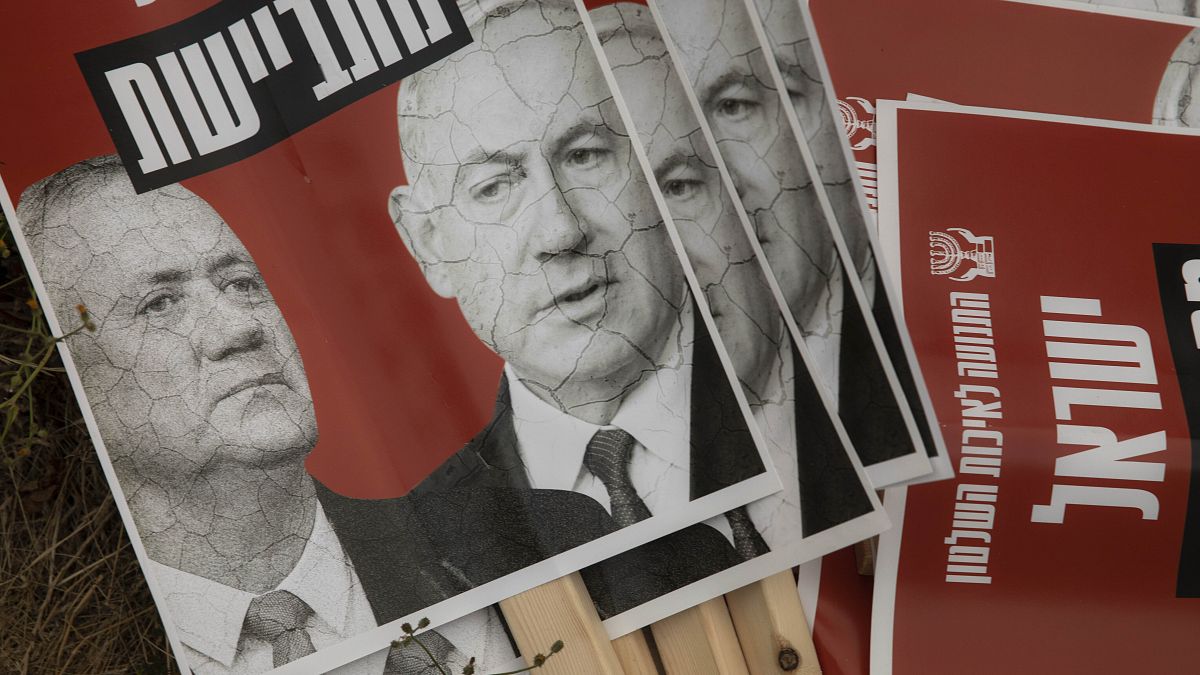Prime Minister Benjamin Netanyahu and his former rival Benny Gantz announced last month that they would join forces to form a new government.
A new government has finally been sworn in in Israel, after three divisive elections and a year and a half of political paralysis.
Prime Minister Benjamin Netanyahu and his former rival Benny Gantz announced last month that they would join forces in a new government, and on Sunday Netanyahu confirmed it.
The swearing in faced an added three-day delay due to infighting within Netanyahu's Likud party.
The new government is much larger than previous ones with Netanyahu and Gantz appointing around 36 ministers and 16 deputies over the weekend.
Critics have already accused the government of being out of touch by creating so many Cabinet posts at a time when unemployment has soared to 25% as a result of the coronavirus pandemic.
The power-sharing deal will have Netanyahu serve as prime minister for the first 18 months of the new government before being replaced by Gantz for the next 18 months.
The deal has already led to the dissolution of Gantz’s Blue and White party after he reneged on his central campaign promise not to serve under Netanyahu, who has been indicted on corruption charges and faces an upcoming criminal trial.
Their much-scrutinised coalition deal could only come about after the country’s Supreme Court ruled it had no legal grounds to block it.
Gantz has argued that teaming up with Netanyahu was the only way out of the political stalemate and has prevented a fourth election. The former military chief, will start off as defence minister.
